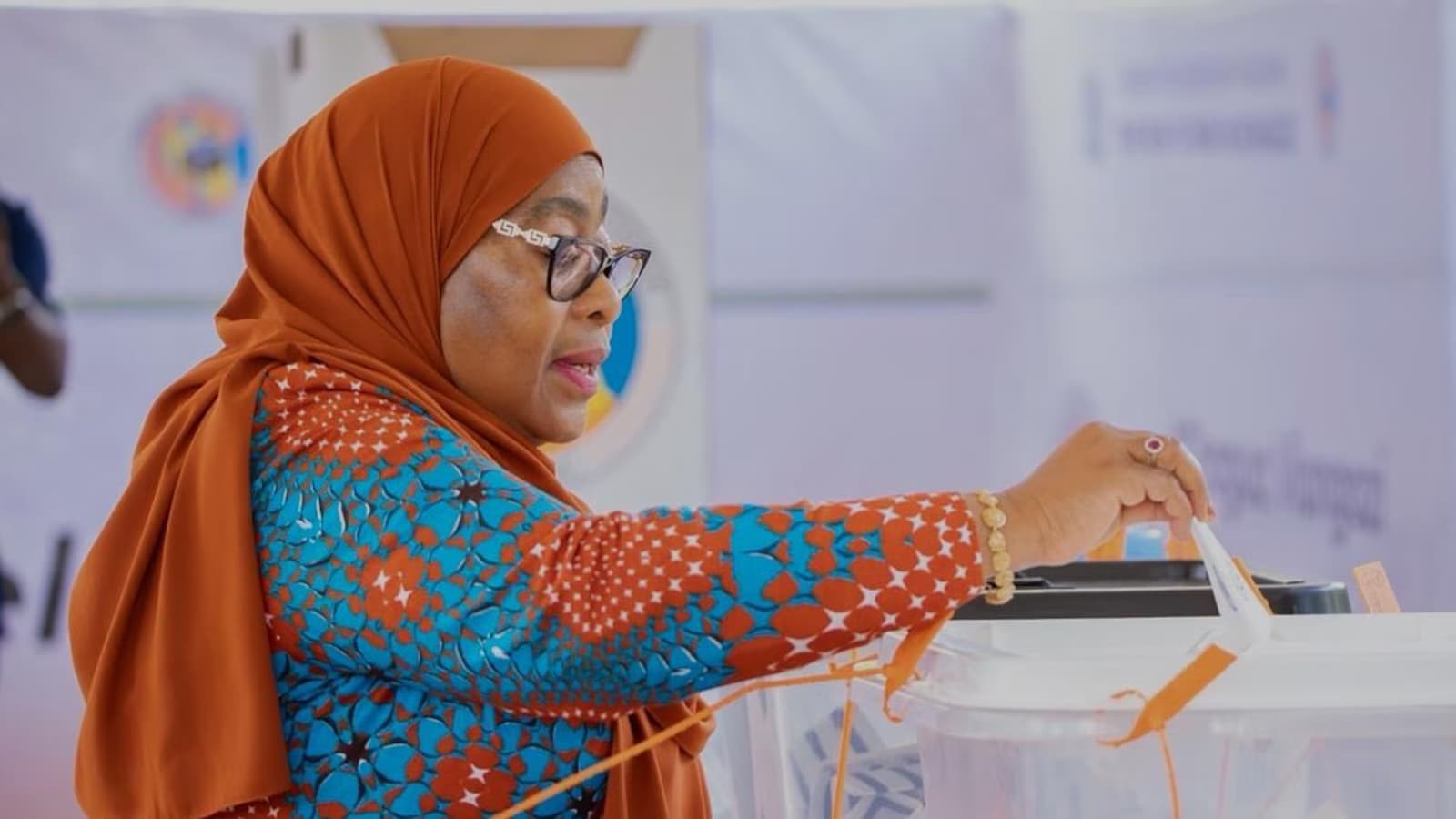We're loading the full news article for you. This includes the article content, images, author information, and related articles.
A heavily contested presidential election in Tanzania raises urgent questions in Nairobi about the future of East African Community integration, trade, and regional security.

DAR ES SALAAM/NAIROBI – Tanzania’s general election, held on Wednesday, October 29, 2025, has plunged the nation into a political crisis, sparking significant concern across the East African Community (EAC) about the potential fallout for regional stability and economic integration. On Friday, November 1, the Independent National Electoral Commission (INEC) declared incumbent President Samia Suluhu Hassan of the ruling Chama Cha Mapinduzi (CCM) party the winner with a landslide 97.66% of the vote. However, the result was immediately rejected by major opposition parties and has been marred by widespread allegations of irregularities, the suppression of dissent, and electoral violence.
The lead-up to the election was fraught with tension. In April 2025, the country's main opposition party, CHADEMA, was disqualified from participating after it refused to sign a government-mandated code of conduct. Its leader, Tundu Lissu, was arrested on charges of incitement and treason following rallies calling for electoral reform. Another significant opposition party, ACT-Wazalendo, also had its presidential candidate disqualified. These actions, coupled with what human rights organizations described as a broad crackdown on critics and independent media, effectively removed any significant challenge to President Hassan and the CCM, which has been in power since 1977.
In a statement issued on Saturday, November 2, CHADEMA labelled the election results an “open coup against the will of Tanzanians” and called on the international community not to recognize President Hassan’s government, stating she “lacks legitimacy.” Protests erupted in parts of the country following the vote, with reports of arrests of opposition leaders and activists. International bodies, including the United Nations and the African Union, have called for calm and urged respect for the rule of law.
The political turmoil in Tanzania, a cornerstone of the eight-member EAC, presents a direct challenge to the bloc's foundational principles of democracy and good governance as enshrined in its 1999 treaty. For Kenya, the stakes are particularly high. Tanzania is a vital trading partner, with bilateral trade valued at billions of shillings annually. In 2024, Kenyan exports to Tanzania stood at Sh67.20 billion. Any prolonged instability could severely disrupt cross-border commerce, supply chains, and the free movement of goods and people, which are central to the EAC Common Market Protocol.
Recent trade relations have already been tested. In July 2025, Kenya initiated high-level talks with Tanzania after Dar es Salaam introduced new levies and a controversial order prohibiting non-citizens from operating in 15 economic sectors, a move seen in Nairobi as undermining EAC agreements. While a diplomatic resolution led to an exemption for Kenyan traders in early October 2025, the incident highlighted the fragility of economic cooperation in the face of unilateral domestic policies. Analysts in Nairobi fear that a Tanzanian government facing a domestic legitimacy crisis may turn further inward, adopting more protectionist measures that could unravel years of progress on regional integration.
The EAC has long faced criticism for its limited ability to enforce its own democratic and governance norms, often prioritizing the sovereignty of member states over collective accountability. Tanzania, historically, has been perceived as a more hesitant partner in the integration process, particularly regarding issues like land ownership and the use of national IDs for travel. A contentious election outcome could deepen this reluctance, stalling crucial EAC projects such as the monetary union and the envisioned political federation.
The crisis unfolds against a backdrop of democratic backsliding in parts of the region. The EAC treaty explicitly commits partner states to “good governance including adherence to the principles of democracy, the rule of law, accountability, transparency, [and] social justice.” The Summit of Heads of State, the EAC's highest organ, is mandated to review the state of peace, security, and good governance within the community. How the bloc, and key members like Kenya, respond to the situation in Tanzania will be a critical test of its institutional credibility and political will.
While President Hassan’s administration had initially signaled a departure from the more authoritarian style of her predecessor, the late John Magufuli, by lifting a ban on political rallies and media outlets, critics argue the recent election demonstrates a significant reversal. The government has consistently refuted claims of repression, with a spokesperson stating in September 2025 that concerns about shrinking civic space were “unfounded and misleading.” As the situation develops, the focus for Kenya and other EAC partners will be on mitigating the economic impact and encouraging a peaceful resolution that aligns with the community's shared democratic values, a task that appears increasingly complex.
Keep the conversation in one place—threads here stay linked to the story and in the forums.
Sign in to start a discussion
Start a conversation about this story and keep it linked here.
Other hot threads
E-sports and Gaming Community in Kenya
Active 9 months ago
The Role of Technology in Modern Agriculture (AgriTech)
Active 9 months ago
Popular Recreational Activities Across Counties
Active 9 months ago
Investing in Youth Sports Development Programs
Active 9 months ago
Key figures and persons of interest featured in this article